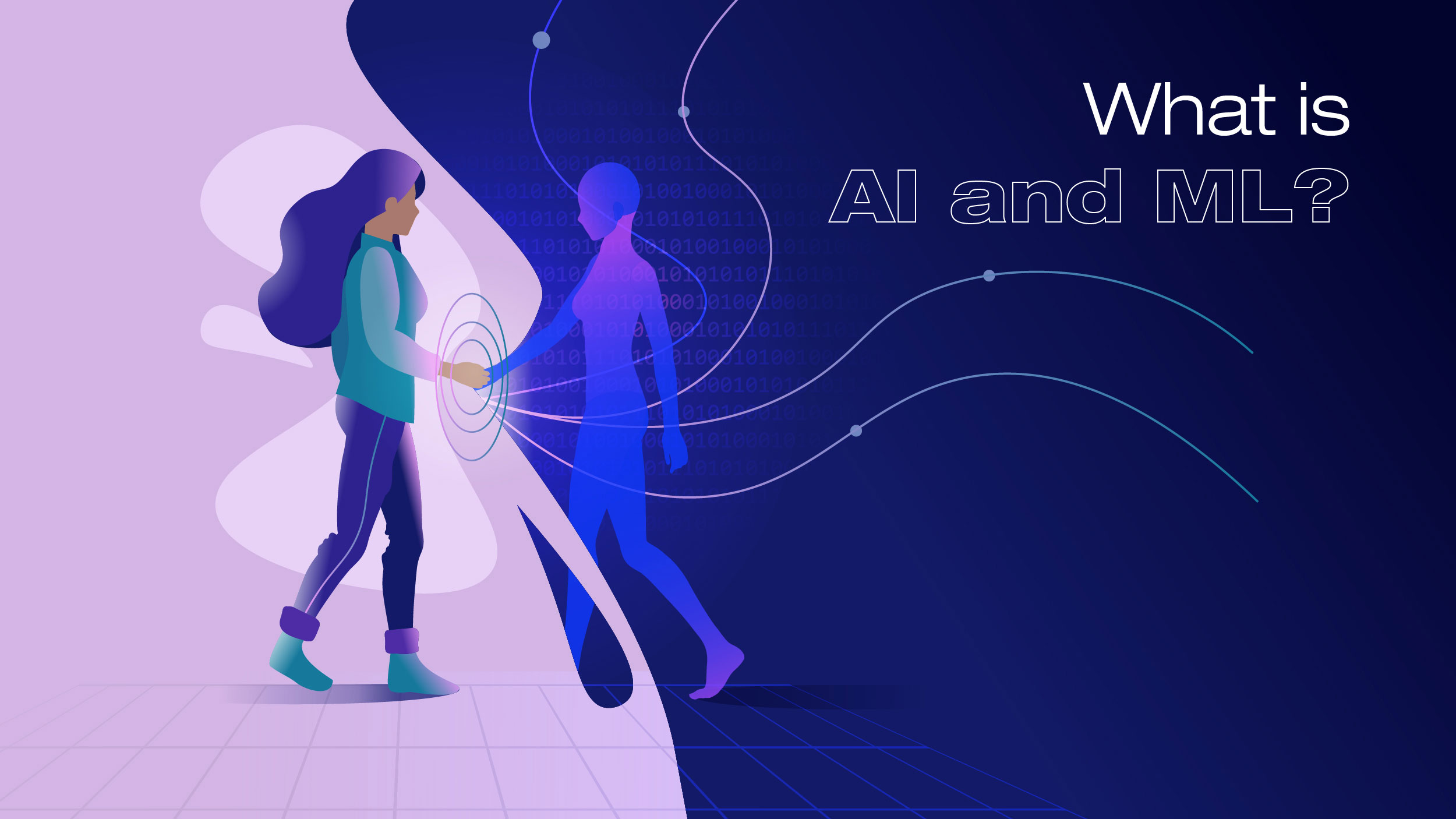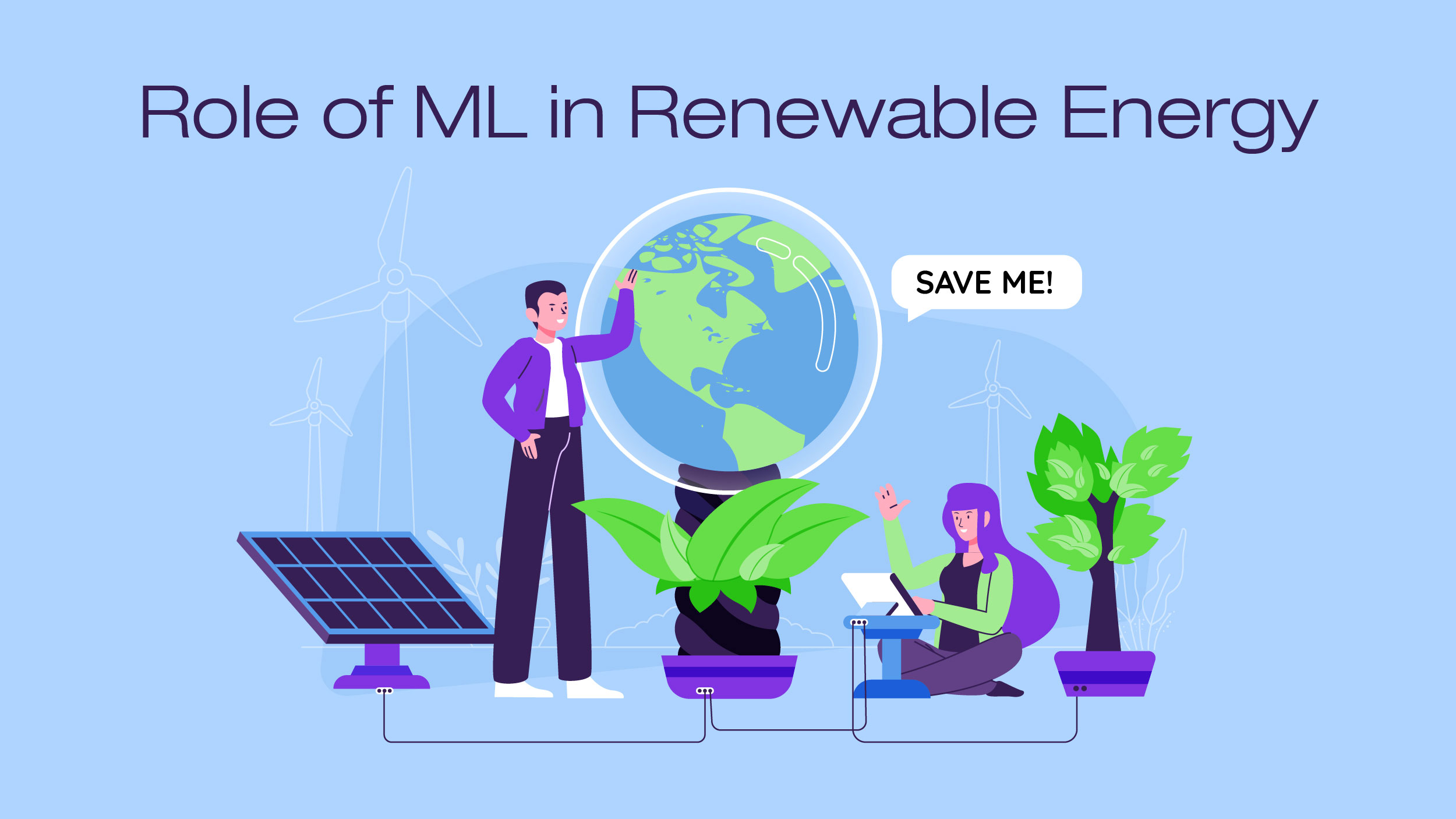The renewable energy sector is witnessing significant advancements in the quest for sustainable energy solutions amidst the pressing need to address climate change and minimize our carbon emissions. Artificial Intelligence (AI) and Machine Learning (ML) have emerged as powerful tools in revolutionizing the integration of cleaner and more efficient energy sources, providing a promising pathway towards a greener future.
Renewable energy is no longer limited to being a specialized sector. In the present day, it has gained worldwide recognition, with solar power, wind power, hydro energy, and other sustainable sources becoming increasingly popular across the globe. Without further ado, let’s have a look at the role of AI and ML in the renewable energy industry.
What is AI and ML?

You may find yourself puzzled about the distinction between artificial intelligence (AI) and machine learning (ML). Allow me to elucidate these technologies before delving into their significance within the renewable energy sector. AI encompasses a range of predictive technologies, encompassing domains such as ML, neural networks, and data science.
Artificial intelligence (AI) is a technology that emulates human behavior, enabling systems to perform tasks in a manner similar to humans and replicate human intelligence. Within the field of AI, there exists a subset known as machine learning (ML), which was introduced by Arthur Samuel, an IBM computer scientist, in 1959. As the volume of big data continued to expand over the following decades, there arose a necessity to leverage this data for enhanced machine performance and predictive capabilities. This need ultimately shaped ML into its current form, powering notable examples such as Netflix’s recommendation engine and self-driving cars. Machine learning encompasses a range of algorithms that enable machines to acquire knowledge, learn from experience, and improve over time through the analysis of specific datasets. Now, let us explore the transformative impact of AI and ML technologies on the future of energy.
Below are some of the key advantages of using AI and machine learning in the renewable energy industry.
- Solve issues: AI and ML in the renewable energy industry can be used to solve many issues at once. For example, Grid operators can estimate how particular appliances behave by applying machine learning technology to data supplied by advanced sensors, smart meters, etc. They can also employ algorithms to forecast storage life and decide required pay-outs.
- Digitization: Smart grids that have embedded sensors capable of employing AI can further digitize the energy sector by transmitting data to software and monitoring systems. AI and ML in the renewable energy sector are making it easier to balance demand and supply when used combined with technologies like Big Data and the Internet of Things (IoT).
- Analyze weather: AI has significantly helped in resolving problems caused by the unpredictable nature of these resources. It is a trustworthy instrument for weather forecasting and it can analyze current weather and historical weather data by combining machine learning to deliver reliable forecasts. The forecast data is then used by the power companies to manage the overall energy systems.
- Infrastructure Maintenance: It can assist in proactive infrastructure maintenance and also in equipment breakdown prediction. For real-time monitoring, AI-driven improvisation can help in maximizing efficiency.
Role of ML in Renewable Energy

Now that we have an idea about how AI impacts the renewable energy industry, let’s see what ML does.
Machine learning and data analytics are valuable for enhancing the energy sector, specifically energy grids, renewable sources, and decentralized networks. The integration of AI and ML can optimize energy usage, greatly impacting the future of the industry. Factors such as skill shortages, reliance on smart technologies, and the need for economical and sustainable energy sources contribute to the importance of machine learning in the energy sector.
Key applications of machine learning in this field include:
- Real-time Data: Machine learning leverages historical and real-time data to identify potential failures and their timing in different systems and subsystems. This allows for real-time monitoring and enables the prediction of potential failures in advance. Such proactive measures improve equipment efficiency and reduce costs significantly.
- Improves Power Grid Stability: Power grid management is a significant challenge as it requires maintaining a balance between power generation and demand. Machine learning can enhance the stability and equilibrium of power systems, especially in renewable energy grids.
- Predict Energy Demand: Machine learning algorithms have the potential to accurately predict energy demand in the energy industry. By analyzing the fluctuations in daily energy consumption of each customer over time, machine learning can optimize energy production, leading to more efficient resource usage and cost reduction.
Also Read: An Ultimate Guide on Software Licensing and Why It is Important?
Winding Up
The integration of Artificial Intelligence (AI) and Machine Learning (ML) in the renewable energy industry holds immense promise for driving forward the clean energy revolution. Through the power of advanced algorithms and data-driven models, AI and ML have the potential to transform every facet of the renewable energy sector, from forecasting energy production to optimizing storage systems and improving energy efficiency.
As we continue to explore the potential of AI and ML in the renewable energy industry, it becomes evident that these technologies are not only revolutionizing the way we generate and utilize clean energy but also accelerating the transition to a sustainable future. However, it is crucial to ensure that the deployment of AI and ML in the renewable energy sector is guided by ethical considerations and a focus on long-term environmental benefits.
In the face of climate change and the urgent need for decarbonization, AI and ML offer unparalleled opportunities for innovation, efficiency, and optimization in the renewable energy industry. By embracing these technologies and harnessing their transformative power, we can pave the way for a greener, more prosperous world, where sustainable energy sources become the backbone of our energy infrastructure.






